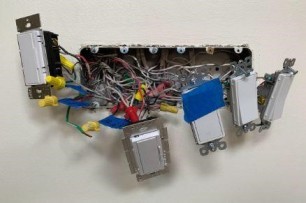General Insurance Blogs, Articles & Updates by - Magma Insurance
Have us call you
- RENEW YOUR POLICY
- BUY NEW POLICY

Do you have a high credit score? You may be eligible for a lower insurance premium
Most people own numerous credit cards from single or multiple banks. While using a credit card does give you a specific advantage, not paying its dues on time can affect your loan and premium.
Have you heard about credit scores? A credit score is a term that describes a debtor's credibility, which is evaluated before availing of any financial services provided by banks or private finance companies.
Whether it is about taking a loan, applying for a credit card, or purchasing insurance, your credit score matters. It is considered to keep a high credit rating to ensure motor insurance India with a lower premium. Let's learn more about your credit score and how it affects your chances of lowering your premium charges.
What is a credit score?
A person's capacity to make timely debt payments is indicated by their credit score. In other words, a credit score is a numerical reflection of your creditworthiness. It is determined by several factors, including:
● Current loans
● Currently available credit
● History of repayment of loans and bills
Any bank will label a customer's credit rating with a numerical score ranging from 300 to 900. A person with a higher credit score is more likely to receive loan approval rapidly. Your credit score defines the level of financial risk you may represent to a financial institution when you seek a loan or insurance.
As mentioned above, an individual with a better credit score will likely get a car loan and insurance quickly. Moreover, they are also eligible for a lower insurance premium. Therefore, improve your credit rating for maximum benefits before applying for a loan or insurance.
How can your credit score lower your car insurance premium?
Banks and other financial institutions look for people with higher credit scores as they are more likely to pay their dues on time. Besides getting better loan options with a higher credit score, banks give insurance plans at lower premiums.
As a corollary, a low credit score may make you pay a higher premium for motor insurance India. Check your credit score, see what factors are affecting it, and identify what changes you can make to improve it.
How to check your credit score?
It only takes a few minutes for anyone to check their credit score online for free. Enter the essential details like name, mobile number, bank name, etc., and the tool will quickly determine your credit ratings.
While the free tool gives limited information, a paid tool with premium services gives exhaustive information about your credit score and tips to improve the ratings.
What is a good credit score?
A credit score of around 750 or above is considered a good credit rating. The higher your credit score, the more your chances of getting loan approval and better insurance plans. While increasing your credit score may seem challenging, you can improve it in minimum time with better planning and information. Here are some tips you can follow to improve your credit score:
● Always maintain your Credit Utilization Ratio within 30%
● Avoid using multiple credit cards at one time
● Ensure not to apply for loan applications in short periods
● Reduce the number of loans
● Pay loan EMIs and credit card bills on time
● Use credit cards within manageable limits
Besides these, you can talk with your bank to learn different ways to improve your credit score. It is necessary to keep your financial records as clean as possible as it impacts your credit ratings. Check your credit history today and work on the items that need your attention to reduce your premium for motor insurance India significantly.
Click HERE to buy reliable motor insurance India.
Disclaimer: The information provided above is for illustrative purposes only. To get more details, please refer to policy wordings and prospectus before purchasing a policy.

Planning your first cruise trip? Here's all you need to know
Watching the beautiful horizon from the open deck is a mesmerising experience. Cruise trips seem elite and sound exciting. It is a paradise for ocean lovers. From solo ventures to family getaways, the cruise journeys welcome travellers to enjoy an unforgettable maritime holiday opportunity. Sailing couldn't have been more fun with several recreational activities, games, and cuisine organised onboard. Every moment on the ship reflects a beautiful memory to cherish forever!
Planning your first cruise trip can seem daunting without proper information about bookings, the right time to travel, the expenses, and much more.
This blog is your guide to understanding all the information you need to know before you board the ship. Carefully go through the pointers and chart all the requirements to plan a hassle-free cruise trip. Here’s all you need to know.
1. Timing is everything:
You need to figure out the right time to sail. Finalise your destinations and understand their sailing season. Look up the details of the touchpoints and the locations you wish to visit on the cruise company’s website or reservation site and research their sailing calendar.
2. Choosing the right cruise:
Different cruise liners provide you with various amenities and a range of activities to do while you’re on your sea voyage. Carefully look at different packages and determine which one fits your vacation goals and budget. Choosing the right cruise is important as they will take you on a journey to foreign countries and continents. Multiple onboard activities will keep you engaged throughout your travel.
3. Intent of travel is important:
Determining how and why you wish to take a cruise trip would be best. It is essential to determine your travel purpose as you will be out in the sea longer than expected. And when there are fewer locations to step down and explore and more sea exploration, things can get a little challenging due to the feeling of stagnation. Hence it is essential to figure out how confident and strongly willing you are to take a sea voyage.
4. Book the cruise:
While planning your first-ever cruise trip, you should book with someone trustworthy. Or some of your close contacts have already experienced their services and recommend them. Given the time of the journey and the heavy expenditure, you must ensure to do research regarding the company before you go ahead and book your tickets.
5. What should your itinerary look like:
Foremost finalise your budget and the location before you head out in search of the best cruise trips and their itineraries. Fixing your budget will help you narrow down your list of options and help you efficiently choose the suitable itinerary that covers all your expectations.
6. Choosing the perfect cabin:
You will have several options to pick from when you are finalising your cabin for the cruise journey. But how to choose the right cabin? If you’re easily seasick, looking for cabins with a sea view will not be advisable. You can choose higher or lower cabins according to your preferences, which do not face the sea but open your doorway into the activity area, making you feel more alive!
Certain other pointers like checking on your travel documents: your passports, visa, identity proof, tickets, etc., are paramount. Keep your health as the priority. Make all necessary preparations regarding the medications you might need beforehand to avoid the stress of getting sick when onboard.
While planning your first cruise trip can be stressful yet exciting, it is always helpful to be prepared for any travel or medical emergencies in advance. Unprecedented circumstances can result in panic situations while travelling. Don’t let health emergencies spoil your excitement of enjoying your first cruise trip.
We advise you to browse through Magma HDI’s general insurance plans and purchase the one which would cover your travel insurance in the best way possible. Purchase the best general insurance plan and sail carefree. Bon voyage!
Click HERE to know more about how general insurance plans can make your travel experience risk-free.
Disclaimer: The information provided above is for illustrative purposes only. To get more details, please refer to policy wordings and prospectus before purchasing a policy.

A guide to change the old wiring in your house
Upgrading electrical wiring makes an old home more secure, modernised, and habitable. This kind of renovation is easier in a recently acquired property than in an older one. Unless you have prior expertise with electrical construction, do not try to change wires on your own.
Most people instantly think of the costs and clutter involving the job. Your strategy is determined by your budget, capacity to reach the walls, ceiling, crawlspace, and the amount of rework permitted.
To clear the confusion, below are the typical steps involved in changing the wiring of a house.
1. Planning:
The better you prepare for the rewiring, the easier the procedure will be. A precise design will assist you in locating and projecting the circuits in a manner that will retain the drywall in place. A thorough layout of the existing circuitry and a precise sketch of the internal components may minimise chaos and disturbance.
2. Working prep:
This step prepares the space for the new wiring. It marks a clear route for supplying the new wire to the outlets. If you opt to undertake the prep work, clearing debris around your house's electrical outlets is crucial to ensure quick access.
3. Calculating the number of circuits:
Many times, outdated wiring may not have enough circuits to meet the energy needs of contemporary appliances, lights, and electronics. Before you begin, you must first plan your trajectories. Conduct a study on housing circuits to aid in layout planning, or contact an electrician as a consultant.
4. Remove the drywall and rewire:
The removal step consists of ripping out and taking off the old wire. Because old wiring is often stapled to the structure, it is impossible to simply take the cables out of the wall. After ensuring that the electricity has been turned off, you may cut the wire and remove the visible portion, leaving the buried cable within the division.
Some wires are placed in more accessible areas and can be taken out quickly. You can tape the new wire to the old ones, pull the old wiring out, and let the new line fall into its spot and take effect.
5. Replace:
Replacement of main and sub-panels is one of the essential steps to changing the old wiring in your house. Also, ensure that you check the condition of the panel. If it's old or does not have circuit breakers in place of fuses, it is better to replace them to prevent further damage. Replacing the panels would also require changing the wiring of your entire house. Try to find a professional electrician to accomplish this task.
Some other steps to change the old wiring in your house include:
• Taking permits from the local authorities (even if you are a homeowner).
• Hiring a good electrician.
• Identifying the access points.
• Having the right tools to complete the work and taking stringent measures to ensure everyone's safety.
It is essential that the rewiring be done correctly and by skilled specialists. If not done properly, the wires might get nicked and lead to short circuits. Furthermore, if the panel and junction boxes are not connected, it might create radiation, negatively affecting your health and even hampering the condition of your house.
Your house is your safe space. It is where you and your family live and create memories. Hence, it is essential to safeguard your home. Invest in a robust home insurance plan and protect your home from unexpected hazards. You can review the available insurance plans and purchase the best home insurance policy in India that offers you great benefits at a reasonable premium.
To get the best home insurance policy in India, click HERE.
Disclaimer: The information provided above is for illustrative purposes only. To get more details, please refer to policy wordings and prospectus before purchasing a policy.

Lost your phone in the crowd? Here's what you need to do
Smartphones are rapidly becoming an integral and inseparable part of our lives. These devices contain a mini virtual world within them that engrosses us with extensive features and seamless specifications. It has everything from the type of cuisine you like to what skincare serum you last purchased. Your social media account details, bank details, countless passwords, contacts and information are all stored in it.
But, what do you do if you lose your phone? In today's world, losing your phone can have significant consequences. Your details can get leaked or erased. Your money can be stolen if your account gets hacked, or you can lose important information.
The majority of phone lost cases are observed in overcrowded places, and, in some cases, the smartphone users forget their phone at public places like restaurants or shopping malls.
So, what if you have just lost your phone somewhere? Here's what you need to do to minimise the damage.
1. Keep trying your number:
It would be best to text or call your phone. The ringing would help you track it. And if your phone is lost (and not stolen), somebody would be able to answer your call and return your phone upon further communication.
2. Report:
Report the loss of your phone to your cell phone carrier. They can help you determine your phone's current location using your number. This could make it easy to retrieve your phone if it's lost in a vast crowd.
You can also deactivate your sim card to ensure that nobody can make threats and illegal fraud calls from your number.
3. Lock:
Try to lock your phone remotely. This will secure your device and restrict others from accessing your personal information. You'll get notified if someone resets it.
You can try deactivating your device too. In the case of iOS devices, you can activate "Mark as Lost", which disables your phone and send a confirmation mail to your email address.
4. Track:
You can track your phone using the GPS if you have the option active on your phone. In the case of an android device, you can log into your Google account (the one you use on your phone) and track your phone's current location using Google location history. This feature is beneficial sometimes, especially if your phone is nearby.
5. Clean:
To ensure that nobody gets access to your social media accounts and other personal information, try to wipe your phone clean if it goes missing in the crowd and you cannot retrieve it. You can use iCloud or Android device manager to erase your data from your device. Also change the passwords of all your bank accounts, social media handlers etc.
6. Monitor:
Try to monitor the activities of your phone. Keep track of any malicious and suspicious activities performed using your phone or number. Get in touch with authorities (police and phone carriers) and inform them if you find something fishy.
When you lose your phone in a crowd, contact your card companies and ask them to lock your cards and unlink your accounts so that nobody gains access to them.
The loss of your smartphone is worrisome. Insure your valuables to add an extra layer of security in case of unavoidable circumstances. You can purchase online general insurance by browsing through several options and purchasing the one that offers maximum benefits.
Click HERE to know more about how you can purchase online general insurance.
Disclaimer: The information provided above is for illustrative purposes only. To get more details, please refer to policy wordings and prospectus before purchasing a policy.

Simple tips to keep your home allergy-free
The changing season affects our health, especially when it is winter. The chilly days are known for causing flu, cold and inviting other viral infections and allergies. There is not much we can do to prevent outdoor allergies, but we can take steps to stay safe indoors and keep our home allergy-free!
To help you with it, we have made a list of important tips for each area of your house to keep them allergy-free. Follow these steps to create a healthy environment for you and your family.
Bathroom:
Your bathroom is the most prone to mold due to the high moisture present. And the key to preventing this fungus is proper ventilation and regular cleaning:
1. Install and use an exhaust fan while showering to let out as much moisture as possible.
2. Remember to wash your towels regularly.
3. To prevent mold growth, it is best to clean your showerheads, sinks, bathtubs, and other faucets with bleach every once in a while.
4. Stagnant water can be problematic even in the bathroom, so empty your bathtubs, buckets, and sinks of any standing water and clear the drain blockage.
5. Avoid wallpapers; instead, paint your walls as mold grows under the wallpapers.
6. Cleaning is a priority; make sure to scrub the toothbrush holders, soap containers, and shelves too.
Living room and general tips:
The living room is where your guest usually hangs out the most. Therefore, it is even more critical to create a safe, comfortable, and allergy-free space for them:
1. Manage indoor plants properly. Please keep them in a dry place, check for mold growth, ensure good airflow by placing them at a proper distance and spray the soil with fungicide.
2. Pay attention to the décor. Reduce the amount of dust collecting things like stuffed animals, heavy curtains.
3. Keep your pets in a confined region and bathe them once every week.
4. Keep wall decorations to a minimum.
5. Air conditioners are perfect dehumidifiers, and they also filter out pollen and discourage cockroaches.
Bedroom:
It is our favourite huddle zone. Therefore, it is necessary to take extra measures to keep this place allergy-free:
1. Periodically wash your pillowcases, bed sheets, linens, floor mats, and curtains.
2. Try to vacuum at least once a day and use a hose to reach every corner.
3. A bed is a heaven for dust mites; it is warm, relatively humid, and has a lot of food in the form of dead skin cells; therefore, clean your bed every day and consider buying dust mite-proof covers.
4. Wash your comforters and pillows regularly.
5. Do not forget to clean your windows. Vacuum your window sills and use cleaners to wash the glass.
6. Use air filters if there is no proper ventilation through windows.
Kitchen:
Most of the allergens and diseases are born in the kitchen. But, by maintaining a clean, ventilated, and dry space, we can control the growth of allergens:
1. Do not leave the dishes uncleaned overnight. It is best to wash them instantly after use. Also, dry them; never put wet dishes in the cabinet.
2. Please do not allow the food to go down the drain, as it will block the drain, leading to mold and stinking sinks.
3. Clean your refrigerator and try to consume leftover food as soon as possible.
4. Only cleaning the countertops after cooking is not enough. Regular mopping and dusting are essential to maintain proper cleanliness.
5. Take the trash out every day as garbage bins can spread way more germs than you think.
6. Make a note of the food allergies you or your family members have. And avoid buying such food.
Considering the above tips, you will manage your home’s health and keep the spaces free from allergens. Financially safeguarding your insured belongings is never a bad idea. So, think of investing in a house insurance plan to protect your home with a promise of trusted safety.
Click HERE to know more about the house insurance plans best suited for your requirements.
Disclaimer: The information provided above is for illustrative purposes only. To get more details, please refer to policy wordings and prospectus before purchasing a policy.

Five best tips to make your home fireproof
The mornings are lazier, and the showers are a little hotter. Hoodies are out of the cupboard; winters are here! While we are desperately seeking to warm ourselves and our houses to a more comfortable temperature, it is important that we first ensure fire safety in our homes. While it's not necessary that fires only happen during the winters, even a BBQ in the warmer months can cause an outbreak. Therefore, you must be prepared for such incidents if they may arise.
Every year, people lose their lives as a consequence of house fire incidents. However, if you plan fire safety measures correctly and safeguard your house, you can prevent a deadly fire from breaking out at your home.
Check this fire safety instruction guide that will help you be on your marks if things go south.
1. Keep multi-use fire extinguishers at important places of your house:
Place fire extinguishers near the areas of your home which have a high probability of catching fire, such as the kitchen, utility area, prayer room, and laundry area. Purchase only the ISI-certified product. Make sure you're familiar with the operating of the extinguisher.
2. Install and maintain smoke detectors at your residence:
Install smoke alarms/detectors in each room. Preferably, use a hard-connected system so that the signal is audible throughout all the rooms. Consider a professionally installed fire alarm system for an even higher level of security. If you use battery-powered smoke alarms, make sure to check the batteries regularly and replace them every six months.
3. Install a fire sprinkler system all over the property:
Installing a fire sprinkler system provides additional fire safety benefits. For big houses, sprinkler systems are often effective when they are operating on automated suppression. Fire sprinklers can safeguard and save all of the property's inhabitants as well as the property itself. They have in built sensors that detect smoke and fire that trigger the water sprinkling process to control fire outbreaks.
4. DO NOT overload switches:
When you overload your power outlets, you significantly increase the chance of an electrical fire in your house. For example, connecting an electric heater to a multi-board or multiplug is dangerous. These heaters consume a lot of energy and, in many situations, can overload the electric circuit, creating an undetected meltdown inside the wire. When left unattended, this can rapidly turn into an ablaze.
5. Look after your practices:
Cooking? Don't leave the gas unattended at any time. People who smoke in the house should be cautious; make sure the burning cherry on your cigarette does not touch anything. Prayer rooms should have proper ventilation, and the ‘diyas’ and incense sticks should have a dedicated place away from anything combustible.
Pro-tip: Have an escape plan ready for the residence. Gather all the family members and share the fire exit plan and an escape route. Examine all available exits and evacuation routes in your home and your apartment. Practice that drill every once in a while to get used to it.
With the winters just around the corner, this is the time when you use room heaters most to keep your home warm. But you might know that room heating is the most common cause of fires. Therefore, it is essential to protect your property from any blaze with all precautions in place. Get in touch with a reliable fire insurance company that will be your guiding hand in unfortunate times. A Fire insurance company will compensate for your loss against unforeseen events like lightning strikes, explosions, or unintentional fire due to short-circuits.
Click HERE to know more about fire insurance plans for your home.
Disclaimer: The information provided above is for illustrative purposes only. To get more details, please refer to policy wordings and prospectus before purchasing a policy.

What is constructive total loss in two-wheeler insurance.
Whether you own a two-wheeler or a car, you should always ensure that you know everything about its maintenance and insurance. Getting insurance for your vehicle is of utmost importance. It protects your vehicle from severe damages by giving you compensation and solves third-party disputes.
However, just getting insurance for your vehicle is not enough. You also need to check out the various additional services offered by the insurance. This way, you can choose the most comprehensive insurance for your 2 wheeler. You must also inquire about all the essential terms relevant to your insurance. One such term is a constructive total loss. Although the term sounds complicated, it is not.
This article will help you to understand various aspects of a constructive total loss.
What is a constructive total loss?
You will likely file a claim for your 2 wheeler insurance only when your vehicle has suffered severe damages. Once you have filed a claim, the insurance company will inspect all the damages and reimburse the amount accordingly. Either you will get cashless compensation or money for the repairs. The damage is assessed well, and only compensation for the damages is provided.
If the vehicle is in dire need of minor repairs or servicing, the insurance company will reimburse that. It can also refund the amount for the replacement of bike parts. However, reimbursement only occurs after all the deductibles are assessed carefully. No matter the damage's severity, you will only get compensation up to the Insured Declared Value or IDV. You will not get any claim money that exceeds the IDV value.
There is also a major catch here. For instance, your two-wheeler undergoes irreversible damage. In such a case, the bike will be beyond repair. The insurance company can then declare it as a total loss. In other words, if the repair cost for the vehicle far exceeds its value, it results in total loss.
It is said that when the repair cost is more than 75% of the IDV, it is impossible to reimburse it. The constructive total loss takes place here.
Let's assume that your two-wheeler gets stolen. Then what will happen? In such a case, your insurance company will reimburse you for the IDV of your vehicle. The claim for theft of your bike will be treated as a total loss claim. The reimbursement amount will be sans the deductibles and depreciation.
How do you apply for a constructive total loss claim?
Now that you are familiar with constructive total loss let's look at the various steps to file a claim. They are:
● Go to the official website of your insurance company
● Look for the claims process tab or page
● You will see blanks to fill in your information
● Provide all the necessary information carefully
● After that is done, verify the self-inspection of your bike through the link sent to your mobile number
● A surveyor or inspector may be sent to get your vehicle inspected. Cooperate with them
● Once everything is done, you can submit all the required documents and forms
These easy steps can get you a total claim from the comfort of your home. You need to keep all these things in mind before you file a claim for your 2 wheeler insurance under constructive total loss. Once you give the correct information and abide by the guidelines, you can access the claim amount.
Click HERE to buy 2 wheeler insurance to protect your motorcycle from unexpected damages.
Disclaimer: The information provided above is for illustrative purposes only. To get more details, please refer to policy wordings and prospectus before purchasing a policy.

Five questions you need to ask before buying a home insurance
Insurance plays an essential role in a person's life and safeguarding hard-earned assets, whether a home, car or business. It is a backup plan to minimise the loss and have efficient damage control when things go wrong. Although most people know the benefits of buying insurance, they often make mistakes due to insufficient knowledge in this field and a lack of in-depth research. Several false pieces of information circulate and get viral on the internet, confusing the buyers, which results in wrong decisions.
In the article, we'll learn about home insurance and people's general queries regarding making the right purchase. Like other insurance products, home insurance pays you for the construction costs and covers the damage due to any unfortunate event.
However, there are numerous things that you need to learn before buying insurance for your home. Before starting your personal research or contacting your desired general insurance company, pen down all your points and doubts. Never take haste steps, and keep control of the entire process in your hands.
Consider these five most frequent questions that ensure you choose the right home insurance.
1. What factors determine the premium on a home insurance policy?
Generally, factors such as location, features, and characteristics of your house determine the insurance policy's premium. Installation of safety and surveillance devices, claims history, and lifestyle habits also affect the policy's premium.
The closer your house is to an area that experiences frequent natural calamities or robberies, the higher it costs to insure it. You can lower your premium if you have good credit history and haven't made any claims. You can also ask your insurance agent how they determine your home's premium to ensure you pay the right premium.
2. What are the replacement costs and the market value of your home?
An insurance company is only interested in your home's replacement cost. You should ask your insurance company about the replacement cost of your home. It is the cost of constructing your house with the equal or similar utility if it was damaged in any unfortunate event. In contrast, your home's market value is your house's price in the real estate market.
3. What does cancelling a home insurance policy mean?
Cancelling an insurance policy means the company no longer covers the insured house. Policyholders and companies can cancel an active policy. Ask your insurance agent when their company can cancel your active policy. Carefully understand all the clauses and possibilities that may void your home insurance.
4. Are there any limitations in a home insurance policy?
Most home insurance policies don't cover losses due to the earthquake or war. Check the list of exclusions on your insurance policy before you get it. However, some policies have specific limits for items, including securities, jewellery, money, and silverware.
5. Does the home insurance policy cover water damage?
Most policies don't provide coverage for water damage. If your general insurance company doesn't offer water damage coverage, you can ask for other policies or add-ons that cover water damage to add more protection to your house. It would be best to look for water damage coverage in the policy, including damage from the spring thaw, snowmelt, burst mains, overflowing rivers, and heavy rains.
Make a list of these five crucial questions before considering any home insurance plan. These questions help you select the best general insurance company. You can also add more questions to your list. Don't forget to ask for a discount when buying multiple insurance plans together. Buy smart and buy the best!
Click HERE to buy home insurance from a general insurance company that suits your requirements.
Disclaimer: The information provided above is for illustrative purposes only. To get more details, please refer to policy wordings and prospectus before purchasing a policy.

